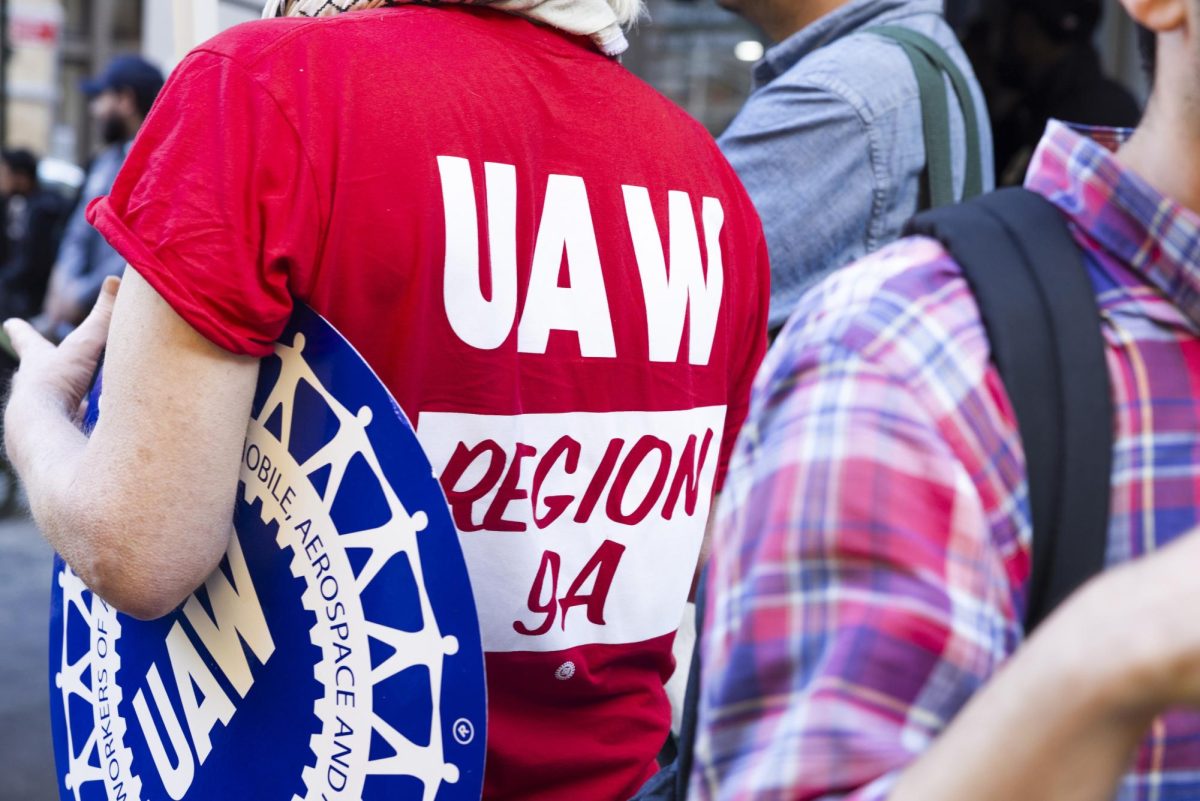The union representing hundreds of contract faculty at NYU started its negotiations with university administration for a contract at a meeting Friday, where union members presented their collective demands and initial recognition article. Administrators did not sign off on the article, which details exactly who the union represents, but scheduled a second bargaining session for Nov. 18.
At the session, eight members of the union — NYU Contract Faculty United — met with administrators to outline their 13 demands, pass the recognition article and schedule their next negotiations meeting. The group has focused on protecting academic freedom and guaranteed job security, as well as improved salaries and health care benefits. Union representative Jacob Remes said that while academic freedom has “traditionally been guaranteed by the system of tenure,” that same protection isn’t felt at NYU.
“The most fundamental way NYU lacks academic freedom is that our jobs are insecure,” Remes wrote to WSN. “Until and unless we have secure jobs, we don’t have academic freedom, which means our students don’t have the freedom to learn.”
Remes said that CFU-UAW members spent the majority of the meeting outlining their demands and advocating for a hybrid bargaining process. Administrators approved the latter, making all future negotiations meetings — during which committee members will draft a contract detailing how their demands will be implemented at the university— accessible to any of the union’s 930 members.
They also reintroduced their recognition article, which administrators initially approved with the union’s election agreement in January, but did not sign off on it at the most recent meeting. Remes said that while this does not inhibit future bargaining, it delays the negotiations process. NYU’s graduate students’ union took around a year to finalize their contract, and the process is known to take longer for larger unions.
Negotiations began eight months after a 553-72 vote to approve CFU-UAW’s recognition, which the union dedicated to forming its bargaining committee and identifying members’ demands. Members have said they feel more vulnerable amid heightened tensions on campus, and Remes cited the university’s drop in a national ranking of free speech as a risk to academic freedom and professors’ ability to teach how they want, specifically referencing heightened security at a demonstration the union held in Schwartz Plaza on Thursday afternoon.
“I had colleagues who were afraid to come to a peaceful union rally — something that is unequivocally their legal right to do, something that the university’s policies permit on paper — because they were afraid that any gathering on NYU’s campus would be met with arrest,” Remes said. “Our university must do better.”
At the demonstration, three mayoral candidates — New York City Comptroller Brad Lander, State Sen. Jessica Ramos and Assemblymember Zohran Mamdani — rallied in support of the union ahead of its bargaining session. The rally also saw State Sen. Brian Kavanaugh, who represents NYU’s neighborhood in the state senate, as well as dozens of students and union members who chanted “Students, staff and faculty, stand in solidarity” and “New York is a union town.”
In his speech at the rally, Lander criticized the disparity in benefits between contract and full-time faculty at NYU, stating that these benefits should be mentioned in employment contracts. He added that the university’s contract faculty union sets a broader precedent as the largest in the United States.
“You are doing something even more powerful than fighting for yourself and your good working conditions,” Lander said at the rally. “I want to give you props for building your power across the country.”
At the rally, Mamdami, a Queens representative who has historically criticized NYU for its expansive real estate holdings, highlighted the role of unions amid a rising cost of living and said CFU-UAW’s plights are representative of a broader citywide movement. Ramos, who chairs New York’s committee on labor, also called on the university to help international professors get green cards and improve its family support program — two of CFU-UAW’s other demands.
In a statement to WSN, bargaining committee member Fanny Shum also said NYU’s child-support system provides funding for less than one-fifth of standard daycare costs, and that public school holidays rarely align with NYU’s days off. Committee member Benedetta Piantella reiterated the latter concern and brought her two children to the bargaining meeting, explaining that she was not able to find alternative care options.
“It’s harder and harder to make rent — nevermind childcare,” Ramos said at the rally. “I hope NYU sees that we are trying to build a community, a city that actually works for us.”
Contract faculty at NYU started discussing unionization in 2017 and officially formed the union in 2020. In 2022, the union launched their public campaign and in January, signed an agreement with the university to begin negotiations in the event of a majority vote, which then took place Feb. 28.
“When they meet us at the bargaining table, they’re not just meeting 11 elected contract faculty members,” Remes said. “We have 930 contract faculty members, thousands of union members on NYU’s campus, a million union members in New York City and the entire UAW behind us. We also have the support of elected officials across the city.”
A university spokesperson did not respond to a request for comment.
Dharma Niles contributed reporting.
Contact Liyana Illyas at [email protected].
























































































































































